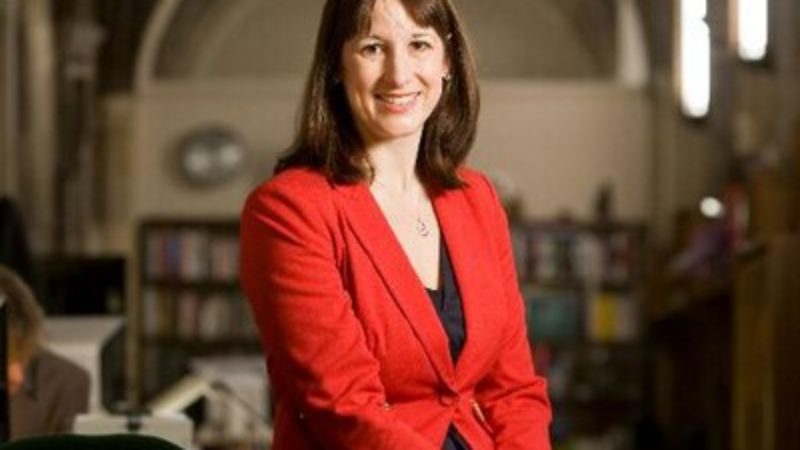

The Labour Party has never been averse to bouts of political soul-searching when we look to the past to learn lessons for the future.
Sometimes this can be self-indulgent and unhelpful, especially if it involves reopening old wounds and dwelling on ancient history that has no bearing on the lives of people whom Labour exists to help. But if we take a balanced and sympathetic view of our past, there is much to learn.
Recently, I’ve engaged in my own exploration of Labour’s history. When I was elected as MP for Leeds West in 2010, I set out to discover more about Alice Bacon, the only woman who had previously represented the city in parliament. I have written about her fascinating life and the impact she had in my book, Alice in Westminster, that has just been published.
Alice was on the frontline in Harold Wilson’s first two governments, serving as a minister at the Home Office and the Department for Education. She helped drive through progressive reforms which transformed Britain – ushering in comprehensive education, the legalisation of abortion, the decriminalisation of homosexuality and the abolition of the death penalty.
Wilson’s government is sometimes forgotten amid the bitter arguments about the Blair era and the near-universal admiration for the Attlee government. But I believe it is worth looking at the example set by Wilson and Alice Bacon as we struggle today to rediscover an election-winning formula and grapple with more fundamental questions about our party’s aims and future.
It was Wilson, after all, who inherited a divided party, demoralised by three successive electoral defeats and struggling for a sense of purpose. Wilson led that party to victories in four of the five general elections he contested,
So what relevance does Wilson’s winning formula and Bacon’s achievements have for us today?
Fundamentally, Wilson offered an inspiring message about the future of our country. Under his leadership, Labour made great strides in terms of getting across a coherent and persuasive message to voters.
Under his predecessor, Hugh Gaitskell, Bacon chaired the new Publicity and Political Education Sub-committee of Labour’s National Executive Committee. This reaped dividends. Labour’s vibrant election slogan – ‘Let’s GO for a New Britain’ – was in stark contrast to a flagging Tory Party coming to the end of thirteen years in office.
At Labour’s 1964 conference, Wilson promised a new Britain would be forged in the ‘white heat’ of the scientific revolution. And, it was fellow Yorkshire politician, Bacon at the forefront of building Wilson’s New Britain.
Her politics represented the best of that government – egalitarian, forward-facing, and always with an eye on the needs of the communities which Labour seeks to serve. This meant embracing consumerism. Left-wingers recoiled from a concept they saw as materialist and bourgeois. But Alice saw consumerism as a way of improving working-class living standards. As she told the House of Commons:
‘One of the good things in the post-war years has been the fact that ordinary working women have been able to take advantage of electrical appliances which were once considered to be luxuries. Only those who live among working people know the difference which it makes on washing days when the woman of the house can use an electric washing machine instead of having to do a big weekly wash in the old-fashioned way.’
Central to the Wilsonian vision of a society where the gains of technology would be shared by all was the drive towards comprehensive education – a goal that Alice had long championed and which she could enact as the minister responsible for schools in the 1960s.
While Alice helped secure great liberal reforms at the Home Office, she also recognised that embracing progress could not mean forgetting the insecurities of ordinary people, especially in the kind of working-class communities where she had been raised and later represented as their MP.
This meant that, while taking a fiercely anti-racist line, there was also an acknowledgement of the real challenges posed by immigration to working-class communities. In 1965, Alice urged Labour’s conference ‘to recognise that these immigrants are concentrated in those very areas where the supply of houses, schools, and teachers is already inadequate.’
For liberals and socialists alike to fail to understand this, she knew, could prove fatal to the Labour Party and leave the door open to the worst elements to gain politically. She was right.
Unlike coalminer’s daughter Bacon, Wilson was in many ways part of the liberal metropolitan set. He had a degree in PPE from Oxford, followed by careers as an Oxford don, a civil servant and a Member of Parliament. But he never lost sight of his roots or his ability to connect with voters.
His status as a Yorkshireman was a badge of pride and one which set him apart from many of his counterparts. He articulated a modern, forward-looking socialism that was rooted in tradition.
Wilson and Bacon both offered a radical politics that harnessed the progressive potential of technological change and communicated it in a language that connected with ordinary people.
They remind us the difference that a Labour government can achieve when the party works together and why we must strive to ensure we deliver one as soon as possible.
Rachel Reeves is MP for Leeds West. Her book, Alice in Westminster: The Political Life of Alice Bacon, published by IB Tauris, is on sale now.




More from LabourList
Delivering in Government: your weekly round up of good news Labour stories
‘Forgotten fathers: pipefitters, plumbers and the paternity pay gap’
‘How can Britain build peace for Palestinians without owning its own past?’